|
Douglas Silas,
Specialist SEN Solicitor 12th July 2021
Being busy is not always being productive...
A lot of people mistake being 'busy' for being 'productive'. They naturally think to themselves that if they put the hours in, they will then see the consequential productivity rewards come at the end of a task or job. But that does not always work in the reality of today's world, where we are now often dealing with the mindset of a knowledge worker, rather than the mindset of a manual worker. Let me explain. You measure a manual worker's productivity by the amount of manual work that they get through in a given time frame. Logic then dictates that, if they can do a certain number of tasks within a given timeframe, you can then easily measure if they are being more or less productive in the time allocated to them by calculating their output. However, somewhat counter-intuitively, this is almost the opposite way of measuring a knowledge worker's productivity. A knowledge worker is usually more creative and their creativity usually comes in moments of inspiration. Just sitting at a desk for a set period of time and feeling busy because they are speaking to people, dealing with emails or phonecalls, or organising what they have to do into lists, does not mean that they always 'do' and will have been necessarily productive for that same length of time. And, funnily enough, creativity often comes at moments that a knowledge worker is actually away from their desk (although they often then need to be at their desk to ultimately turn that theoretical creativity into something more practical and tangible). I have found that I am actually more productive when I have less to do, but am then able to just focus on the task that I want or need to do, without having any distractions to interrupt me. This then means that I can just get on and 'do' it. Ironically, when I work this way, it also allows me to do more things in less time (provided that I have also organised myself efficiently). But it is no good you just reading this, as you will not truly believe that what I am saying may be true. You need to also take a leap of faith and really try it for yourself in practise to see that it actually can work for you too. And if it doesn't work for you the first time, or even the first few times, don't just give up, keep trying after checking to see whether there is really a distraction that you hadn't noticed before standing in your way. It really works - honestly!
In this week's SEN Update, you will find sections entitled:
I know how busy everyone always is, so please feel free just to read the sections that are of interest to you or read everything; the choice is always yours.
Don’t forget, to ensure that you never miss one, you can get my SEN Updates personally by completing your email details above,
or by following me on one of the social media platforms I use (i.e. Twitter/Facebook). You can also share this SEN Update with others (please only do so if it may be relevant to them) by using one of the icons, usually to the right or at the bottom of this page.
PLANS TO END COVID RESTRICTIONS IN EDUCATION SETTINGS
With the announcement at the beginning of the week about the Covid-19 restrictions being eased, the Government/Department for Education (DfE) has issued a raft of new guidance for educational settings I can do no better than to quote from an email that I subsequently received from the DfE's Special Educational Needs and Disability Division, which stated: "Dear colleagues, The lifting of Covid restrictions in education settings will take place in line with the general removal of restrictions for England at Step 4. Subject to a final review of the data next week, these legal restrictions will end on Monday 19 July. We are changing the controls that apply in early years, schools, colleges and higher education institutions to maintain a baseline of protective measures while maximising attendance and minimising disruption to children and young people’s education. When we move to Step 4 of the roadmap, we will be removing the need to keep children and young people in consistent groups (‘bubbles’) in schools, colleges and out-of-school settings and the need to reduce mixing in early years settings. To support this we have published new guidance for arrangements in education settings from Step 4, covering both the summer period and the following term, when children will return to school: · Guidance for special schools and other specialist settings · Actions for schools during the coronavirus outbreak · Actions for FE colleges and providers during the coronavirus outbreak · Actions for early years and childcare providers during the coronavirus outbreak · Use of PPE in education, childcare and children’s social care Guidance for out-of-school settings, children’s social care, apprenticeships and parents will be updated over the next 2 days. From 16 August, the legal requirement to self-isolate for contacts of a positive case will end for everyone aged under 18, and for adults who have been fully vaccinated. This means that from the autumn term, only those who test positive will need to self-isolate. From Step 4, NHS test and trace will carry out contact tracing in all education settings rather than it being run by the school or college. Those identified as close contacts will be advised to take a PCR test, and only need to isolate if they test positive. Everyone must self-isolate if they have symptoms of Covid or a positive test result. More details on the announcement can be found here Covid restrictions in education settings to end at Step 4 - GOV.UK (www.gov.uk)" Hope that this helps.
CONSULTATION ON BEHAVIOUR MANAGEMENT STRATEGIES
The Department for Education (DfE) also sent out another email later this week through the SEND Division entitled: 'Consultation on Behaviour Management Strategies'. Again, I can do no better than to quote from the email, which stated: "Dear colleagues, Earlier this year, the Secretary of State announced that we will be consulting on revisions to both the behaviour and exclusions guidance later this year. To help inform guidance revisions we launched a call for evidence on behaviour management strategies, mobile phones, managed moves, and in-school units on 29 June 2021. The call for evidence will be open for a total of six weeks and will close on 10 August 2021. You can submit your views here: Behaviour management strategies, in-school units and managed moves - Department for Education - Citizen Space We would be grateful if you could disseminate this amongst your networks. We would like to add that this will not be the only point that we expect individuals to provide their views to us on these areas and intend to provide further time for the sector to provide evidence to us during the consultation period in autumn. We look forward to receiving your response. Many thanks, Special Educational Needs and Disability Division' From what I have read, not everyone agrees with how this may affect children and young people with SEN, so if this is something that concerns you, I encourage ou to respond.
LATEST NEWS ONLINE
In terms of news, here are the articles that I found of interest this week: Huge surge in number of pupils sent home due to Covid UK Covid: rates of long Covid likely to increase significantly, particularly among young, warns Chris Whitty – as it happened Covid bubbles to be axed in England's schools Ofsted: Put SEND pupils 'at centre' of Covid recovery
Again, aside from clicking on the relevant links for more information, I would also remind you of the very useful resources and information provided on the following websites:
- IPSEA - Council for Disabled Children - Contact - Scope - Special Needs Jungle I would also highlight again the fact that you can now get a digital copy of the magazine: Autism Eye which is very helpful to any parents or professionals involved with children/young people with Autism. Keep safe until next week. With best wishes Douglas
P.S. I understand that there are many educational items, news articles, or other useful resources on the web, so I would be very grateful if you could let me know of any that you find that you think that others may find useful, so that I can direct people to them.
How useful do you find my SEN Updates?
Created with Quiz Maker
Douglas Silas,
Specialist SEN Solicitor 14th June 2021
Give people the chance to learn from a mistake…
We often say, where children are concerned, that if they make a mistake, we should usually not make a big deal out of it, but rather realise that this was an accident and let them learn from it (or us use it as a way to teach them how they can learn from it). We also know not to do something for them, otherwise they will never learn. Yet how many times do we do this in our personal lives with adults? Too often we are too quick to judge and condemn someone when they just make a mistake. We say to ourselves or others, things like: "They should have known better" or "They are always like that". We sometimes even imagine that they have done it deliberately and not even think that it could have just been a mistake. How often do we really try to put ourselves in their shoes and see things from their perspective? They may have said or done something which they genuinely thought would work and now, not only do they have to face the consequences and disappointment arising out of their actions, but they now also have you judging them for not being good enough! Not only is that twice the amount of hurt or shame, it also means that you will have potentially taken away from them a valuable learning opportunity, as people usually become instinctively defensive when they feel like they are being criticised and, not only then try to justify their actions to you or themselves, but also become more entrenched in believing what they did or said was reasonable and find even harder to then admit that it was a mistake, to you or themselves. And it probably was also a mistake that you would have wanted to learn from, if you had been in their place. So, next time something like this happens to someone around you (adult or child), try not to be too quick to judge them and give them the chance to correct their mistake. It is what you would want somebody to do for you if the roles were reversed.
In this week's SEN Update, you will find sections entitled:
I know how busy everyone always is, so please feel free just to read the sections that are of interest to you or read everything; the choice is always yours.
Don’t forget, to ensure that you never miss one, you can get my SEN Updates personally by completing your email details above,
or by following me on one of the social media platforms I use (i.e. Twitter/Facebook). You can also share this SEN Update with others (please only do so if it may be relevant to them) by using one of the icons, usually to the right or at the bottom of this page.
THINGS USUALLY COME IN THREES (MORE GOVERNMENT GUIDANCE)
Things usually come in threes, don't they? Well, it's time for more Government guidance/information and this time it is three things at once! I received an email this week from the SEND Division at the Department of Education (DfE), entitled: 'Summer Schools, Transition to employment toolkit & new NSPCC/DfE helpline', which said: "Dear colleagues, There are three things that we would like to draw your attention to this [week]: Summer schools: updated funding allocations and guidance As part of the wider recovery package to support children and young people with their mental health and wellbeing and to support recovery from the impact of missed face-to-face learning, £200m of funding is available for secondary schools to deliver summer schools this year. Over 80% of eligible mainstream schools have now signed up to the programme. To maximise the funding available for special schools and alternative provision settings, we have now calculated their funding allocations on the basis of 50% of their year 11 cohort being offered a two-week summer school, in recognition that these settings generally have few year 7 pupils. For any special schools or alternative provision settings whose year 7 cohort is larger than their year 11 cohort, those schools’ initial funding allocations will stand. Today, we published a form at https://form.education.gov.uk/service/summer-schools-programme, asking schools to confirm their arrangements for their summer school by 30 June. Schools that did not complete the initial sign-up form can still join the programme by completing the June confirmation form. Subject to overall take-up, schools may be able to claim funding to cover additional places and can request this in the June confirmation form. Those schools will be notified quickly of any additional funding, but should plan to deliver their summer school within their published maximum allocation in the meantime. The guidance on summer schools reflects the change to SEND/alternative provision funding. It also confirms the conditions of funding, has an expanded section on academic, enrichment and mental health resources and provides a link to the DfE summer schools webinar which includes input from headteachers and other experts. If you have any questions, please contact us at [email protected]. Transition to employment toolkit launched by Ambitious about Autism and the Autism Education Trust Ambitious about Autism and The Autism Education Trust have today launched a new employment toolkit to support autistic young people into the job market. The Transition to employment toolkit is free to download and aims to prevent autistic young people falling out of education, employment or training when they leave school. The toolkit is not just for young autistic people to use, but also for careers professionals and employers, to help them better understand the needs and skills of young autistic people and support them into further education or work. Sections of the toolkit can be easily downloaded and edited and are designed to be used flexibly. Launch of new NSPCC/DfE helpline for children and young people subjected to unwanted sexual behaviour in an education setting A new UK wide dedicated helpline has been set up by the NSPCC and the Department for Education to support those who may have been subjected to unwanted sexual behaviour or abuse whilst in an education setting. The helpline is equipped to cover personal incidents or concerns for others, and for both recent and historical events. DfE has set-up two social media resource packs on Dropbox containing assets to promote the helpline, one to target children and young people, and another for adults. We ask that education settings, along with wider sector organisations, use these resources on their own channels, and also cascade to their community networks. All amplification would be extremely valued, and ultimately help reach someone who vitally needs this support. Many thanks, Special Educational Needs and Disability Division"
THE IMPACT OF COVID-19 ON TRIBUNAL HEARINGS (REPORT)
I know that this will not interest/affect everybody, but if it does interest/affect you, I wanted to bring it to your attention, as it is very interesting. The Legal Education Foundation has just produced a report this week entitled: “Understanding the impact of COVID-19 on tribunals: The experience of tribunal judges“ which was commissioned by the Senior President of Tribunals to understand the impact of COVID-19, identify opportunities for improvement and guide future developments. (If you don't know, The Legal Education Foundation is an independent grantmaking foundation that focuses on the role of legal education in helping people understand and use the law as a tool for change, as they know there are many people who cannot obtain justice in relation to everyday problems). The report examines the impact of remote hearings under COVID -19 and sets out 35 recommendations to guide their use as the tribunals move toward recovery and their website says: "The grant-giving charity The Legal Education Foundation has today published research that sheds light on the experience of tribunal judges as they adapted to the use of remote hearings in the early months of the pandemic. The report: “Understanding the impact of COVID-19 on tribunals: The experience of tribunal judges“ was commissioned by the Senior President of Tribunals to understand the impact of COVID-19, identify opportunities for improvement and guide future developments. ... The survey on which the report is based captured the experiences of over 1500 tribunal judicial office holders who were asked to reflect on the remote hearings they had taken part in between March and July 2020. The 35 recommendations presented in the report set out immediate practical and longer- term steps to improve the experience of judicial office holders and to ensure that remote hearings are deployed in a manner that secures safe, effective and efficient access to justice. ... The research gathered the views of judicial office holders on a range of topics including: i.) their satisfaction with the support and guidance they were offered; ii.) their views on the technology that was used, iii.) their perceptions of the impact of remote hearings on the practical and emotional barriers to participation experienced by appellants; iv.) the effect of proceeding remotely on their ability to identify and make adjustments for vulnerable appellants; v.) the influence of remote hearings on the structure of hearings and vi.) any changes to their decision-making process that had occurred in response to proceeding with hearings remotely. The survey also explores the impact of remote hearings on the well-being and morale of judicial office holders. ... The report’s recommendations include:
You can read the full report here.
LATEST NEWS ONLINE
Again, here are other news articles that I found this week: Is sleep a ‘magic pill’ for teen wellness in a mental health crisis? Girls asked for nudes by up to 11 boys a night, Ofsted finds Unions call for return of masks to secondary classrooms in England After a year at home, children with disabilities deserve priority vaccination ‘Tutors change daily’: headteachers call for schools to control England Covid catchup money
Again, aside from clicking on the relevant links for more information, I would also remind you of the very useful resources and information provided on the following websites:
- IPSEA - Council for Disabled Children - Contact - Scope - Special Needs Jungle I would also highlight again the fact that you can now get a digital copy of the magazine: Autism Eye which is very helpful to any parents or professionals involved with children/young people with Autism. Keep safe until next week. With best wishes Douglas
P.S. I understand that there are many educational items, news articles, or other useful resources on the web, so I would be very grateful if you could let me know of any that you find that you think that others may find useful, so that I can direct people to them.
How useful do you find my SEN Updates?
Created with Quiz Maker
Douglas Silas,
Specialist SEN Solicitor 7th June 2021
Be prepared to change your mind…
Sometimes you think that you understand something, but then somebody comes along and presents a different view of the same thing. Human temptation is normally to think that you are right, so that the other person must therefore be wrong. But you must resist this temptation and be prepared to look at things again from a different perspective. You will then usually find, as counter-intuitive as it seems, that both you and the other person may be right. This happened to me this week. In my update last week (below) entitled: 'Don't let is sound like criticism', I presented an argument that we should always be careful not to say something to someone else that sounds like criticism. However, although I thought that I had given it a lot of thought to it before I wrote it, I soon received an email from a reader pointing out to me that criticism can also be constructive and that, in fact, my accompanying cartoon made him think that it is the recipient of criticism who is more at fault than the critic. Of course, this is also correct (although I mainly chose the cartoon because I thought it was funny!) Like the famous quote says: 'When the facts change, I change my mind, what do you do?'
In this week's SEN Update, you will find sections entitled:
I know how busy everyone always is, so please feel free just to read the sections that are of interest to you or read everything; the choice is always yours.
Don’t forget, to ensure that you never miss one, you can get my SEN Updates personally by completing your email details above,
or by following me on one of the social media platforms I use (i.e. Twitter/Facebook). You can also share this SEN Update with others (please only do so if it may be relevant to them) by using one of the icons, usually to the right or at the bottom of this page.
'CATCH-UP' FUNDING/VACCINATIONS FOR CHILDREN & YOUNG PEOPLE
You'd have thought that with a shorter week because of the Bank Holiday and it also being half-term last week, that there wouldn't be too much for me to report for you this week? Wrong! There has been so much in the news in the past few days that I have again dedicated the first section of this SEN Update to a number of new articles about the issues of 'catch-up' funding/school recovery plans and also the issue of providing a Covid-19 vaccine now to children and young people. Rather than me telling you what has been happening, I will just provide the relevant links here below (I think the headline titles also speak for themselves): 'Catch-up' funding/school recovery plans: What students really want from school catch-up Teaching unions criticise plan to extend school day in England Pupils in England to be offered 100m hours of tuition in Covid catch-up plan Covid catch-up plan for England pupils ‘pitiful compared with other countries School catch-up tsar resigns over lack of funding Are school catch-up plans scuppered by resignation? Providing a Covid-19 vaccine to children and young people: India Covid variant spreading in England’s schools, data shows UK approves Pfizer jab for 12 to 15-year-olds The pros and cons of giving Covid vaccines to UK children School leaders say pupils should be vaccinated as matter of priority
LONELY IN LOCKDOWN REPORT BY SIBS
I usually use these weekly updates to highlight for you the main things that I have found In the news in the past week, which may affect children and young people with SEN. However, once in a while, I see something else which is related that I also want to highlight for you, which I save to bring to you later. Well, today is one of those weeks, as today I want to highlight the organisation: 'Sibs', which provides a voice and support for siblings of children and young people with SEN, Sibs recently issued a report entitled: 'Lonely Lockdown. Life for siblings of disabled children in the UK', whose title I think also speaks for itself. It highlights the impact the latest lockdown has had on the health and wellbeing of siblings of disabled children. The relevant page on Sib's website says: 'Children and young people growing up with a disabled brother or sister often get less attention from parents and have more worries and responsibilities than their peers. Lockdown and the Covid-19 pandemic has created further isolation and challenges for this group of children and young people. Our last survey in May 2020 told us that life had been tough for siblings, and ten months on, we wanted to understand how this latest lockdown had impacted on siblings' health and wellbeing. Many siblings have also become young carers for the first time. "Lonely Lockdown" is a collaboration with UCL family researcher Dr Georgia Pavlopoulou. Sincere thanks to all parents who took the time to share their views with us. Key statistics revealed:
To read the full Lonely Lockdown report go here: Interesting.
LATEST NEWS ONLINE
And here are the other news articles that I found of interest this week: A sacrificed generation’: psychological scars of Covid on young may have lasting impact Covid: Pupils fell behind again in second lockdown Labour flags concern over outsourcing of England catch-up tuition Tory group demands rethink on recovery plan for English schools Covid has eroded progress by disadvantaged pupils in England, finds study
Again, aside from clicking on the relevant links for more information, I would also remind you of the very useful resources and information provided on the following websites:
- IPSEA - Council for Disabled Children - Contact - Scope - Special Needs Jungle I would also highlight again the fact that you can now get a digital copy of the magazine: Autism Eye which is very helpful to any parents or professionals involved with children/young people with Autism. Keep safe until next week. With best wishes Douglas
P.S. I understand that there are many educational items, news articles, or other useful resources on the web, so I would be very grateful if you could let me know of any that you find that you think that others may find useful, so that I can direct people to them.
How useful do you find my SEN Updates?
Created with Quiz Maker
Douglas Silas,
Specialist SEN Solicitor 10th May 2021
You can’t be good at everything...
Try as we might, we can never be good at everything we put our hand to. There will always be people who are better or worse than us at things and, so too, there will always be things that we are better or worse at than others. We just have to accept this fact, as to do otherwise will just infuriate us, since we will constantly be trying our best to achieve something all the time, but will then find, to our disappointment (and sometimes anger or despair), that somebody has got there before or after us. You will therefore always drive yourself crazy if you think like this - there is no clearer path to madness. So, through a process in life of 'hit and miss' we gradually need to work out what our strengths and weaknesses are and then play to our strengths and minimise our weaknesses. This doesn't mean that we should not still enjoy doing the things we may not be so good at, especially if they bring us pleasure, but we should recognise that we will probably not excel at them and then concentrate our time on things that we can do better. And the irony of all of this is often that, when other people tell us we cannot do something just because they may have seen us try and fail, perhaps a few times, it is sometimes the moment when we then become more determined to prove them wrong and usually ultimately succeed at the things they said we could never do! And a further irony is that we can then use the principles that we learn through these trials and tribulations of achieving this, to be successful at something else!! Yet, despite this, the initial principle usually remains the same - you cannot be good at everything and it is easier if we eventually accept this.
In this week's SEN Update, you will find sections entitled:
I know how busy everyone always is, so please feel free just to read the sections that are of interest to you or read everything; the choice is always yours.
Don’t forget, to ensure that you never miss one, you can get my SEN Updates personally by completing your email details above,
or by following me on one of the social media platforms I use (i.e. Twitter/Facebook). You can also share this SEN Update with others (please only do so if it may be relevant to them) by using one of the icons, usually to the right or at the bottom of this page.
MENTAL HEALTH AWARENESS WEEK
Thankfully, there was a fair bit of information I saw that I thought I would bring to people's attention this week. In fact, ironically, there was more this week than I could highlight in my first two sections, so I have put more links in the third section under 'Latest News Online'. In this first section, I want to highlight mental health again. I saw that it is 'Mental Health Awareness' this week. We are all very aware of the impact the pandemic this past year or so has had on the mental health of our children and young people. I then realised that, after looking, I had overlooked noting that 'Children's Mental Health Awareness' week was at the beginning of February! However, after some further research, I came across the website for the 'Mental Health Foundation' and there found a number of useful bits of information about 'Mental Health Awareness Week 2021', which the year's theme is 'Connect with Nature'. I found my way to a webpage where you can download a 'Connect with Nature School Pack', which says: "Connecting with nature in a great way you can help young people improve and maintain their mental health and wellbeing. Our ‘Mental Health in the Pandemic’ study found that going for walks outside was one of our top coping strategies and 45% of us said that being in green spaces was vital for looking after our mental health. The Mental Health Foundation’s Peer Education Project is a Secondary School-based project that gives older pupils the tools to deliver mental health lessons to younger pupils. The project has worked with pupils and staff from participating Secondary Schools to create the Connect with Nature School Pack, which is available for all schools across the UK. This school pack will provide the materials and resources needed to support pupils to connect with nature in a meaningful way. The pack is designed to be used in secondary schools, but it has lots of useful information for primary schools too. It is available in English and Welsh. The pack includes:
Hope this helps.
AREA SEND INSPECTIONS AND OUTCOMES
This week Ofsted also published their official statistics on 'Main findings: area SEND inspections and outcomes in England as at 31 March 2021'. Obviously, you can click on the link if you want to read everything for yourself (there are a number of charts), but they also provide a helpful summary of things, which says: "This is the main findings report for the area special educational needs and disabilities (SEND) inspections and outcomes in England 2021 release. The following are also available:
This release contains:
lmpact of COVID-19 (coronavirus) On 17 March 2020, all routine Ofsted inspections were suspended due to the COVID-19 pandemic. As a result, we suspended area SEND inspections and re-visits to local areas that had been required to produce a written statement of action (WSoA). We have included all reports published by 31 March 2021 in this release. Between October 2020 and March 2021, Ofsted and the Care Quality Commission (CQC) carried out a series of interim area SEND visits, visiting 10 local areas across the country. Participating local areas will remain anonymous, but learning has been shared in several thematic national reports. Main findings Since 2016, Ofsted and the CQC have carried out joint inspections of SEND arrangements in 116 of the 151 local areas across England. Just over half (59 out of 116) of the areas inspected have been required to produce and submit a WSoA to Her Majesty’s Chief Inspector (HMCI). This is an indication of significant weaknesses in the local areas’ SEND arrangements. The proportion of local areas required to produce a WSoA varies across the country. At a regional level, the proportion of local areas with a WSoA ranges from 1 in 4 in London, to more than 4 out of 5 in the East of England. Inspection outcomes have not varied much in the last 3 years. Relatively similar proportions of local areas have been required to produce a WSoA each year, from just over half to under two thirds. Twenty-one local areas have received a re-visit. Inspectors determined that 9 local areas were making sufficient progress in addressing all the significant weaknesses identified during their initial inspection."
LATEST NEWS ONLINE
And here are the news articles that I found of interest: Call for masks to remain compulsory in England’s schools Popularity at school linked to age position in class – study Secondary school pupils no longer advised to wear masks in class, Williamson confirms Autism more common in children in England than previously thought – study Pupils should keep wearing masks into the summer, Sage told ministers Covid: Poor pupils fall further behind in maths Infection rates dropping in schools: What does the latest data show
Again, aside from clicking on the relevant links for more information, I would also remind you of the very useful resources and information provided on the following websites:
- IPSEA - Council for Disabled Children - Contact - Scope - Special Needs Jungle I would also highlight again the fact that you can now get a digital copy of the magazine: Autism Eye which is very helpful to any parents or professionals involved with children/young people with Autism. Keep safe until next week. With best wishes Douglas
How useful do you find my SEN Updates?
Created with Quiz Maker
Douglas Silas,
Specialist SEN Solicitor 22nd March 2021
You can see a lot when you just watch!
Seems really obvious doesn't it, but you will be surprised at how often we fail to notice what it right ahead of us and sometimes staring us in the face. And sometimes the reason we don't see things coming that we should do, is that we are usually too wrapped up in thinking our own thoughts, or spending our time telling other people what we think (whether or not they have asked us!) Another very common reason why we don't see things sometimes, is that we fail to spot patterns repeated by other people, or in repetitive situations. If we don't want to believe something, we often, subliminally, try to convince ourselves that what we are seeing is not really happening (or is not happening again). We don't see the patterns of behaviour at play. It is like we are sometimes in denial and do not want to unconsciously face up to the truth or reality. Yet, in the end we always try to comfort ourselves, by telling ourselves that, deep down, we always knew it and we should have trusted our gut instincts, or have people around us telling us (albeit with the best of intentions) that: "I told you so", which then just makes us feel even worse, or even more defensive. Again, it seems obvious, but we can often notice things if we just look at them more closely and think about them. Like someone once said (and apologies if you have heard another version of this before) - if it looks like a duck and it acts like a duck, it probably is a duck! In this week's SEN Update you will find information about:
I know how busy everyone always is, so please feel free just to read the sections that are of interest to you or read everything; the choice is always yours.
Don’t forget, to ensure that you never miss one, you can get my SEN Updates personally by completing your email details above,
or by following me on one of the social media platforms I use (i.e. Twitter/Facebook). You can also share this SEN Update with others (please only do so if it may be relevant to them) by using one of the icons, usually to the right or at the bottom of this page.
NEW CHILDREN'S COMMISSIONER
After I said in my SEN Update at the beginning of last week that there was not a lot of news to report the week before, the past week has now made up for it with lots of news and articles! So today, although, as usual, I am going to still share a few new stories which I found of interest, in the third section of this update, I want to use the first two sections to look at some of those stories in more detail. The first bit of news I want to share with you is the appointment last week of Dame Rachel de Souza, as the new Children's Commissioner for England (I shared some departing words from her predecessor, Anne Longfield, a few weeks ago). Although widely covered in the media, I can do no better than to quote from the BBC's website article entitled: 'New children's commissioner pledges to 'rebuild' childhood', which said: 'The new children's commissioner for England wants to "rebuild childhood" after the disruption of the pandemic. Dame Rachel de Souza says the scale of the challenge is like reconstructing the social security system in the wake of World War Two. She also wants short-term measures - such as free school meals - being extended into the summer holidays, and not "dropping" Universal Credit levels. Dame Rachel says she will be "fearless" in representing children's interests. The new children's commissioner is launching what is claimed to be England's biggest survey of children - the "Big Ask" - which will gather children's views on the impact of the pandemic, and what they think are the barriers to children's ambitions 'Once in a generation' The online survey, to be sent to all schools and also children in youth custody, children's homes and mental health units, will provide information for a "once-in-a-generation" review of how children's lives might be improved. It takes its "spirit and the ambition" from William Beveridge's 1942 report, which laid the foundations for the post-war welfare state, identifying the five great challenges as "want, disease, ignorance, squalor and idleness". "Our response to the trauma of the Second World War was to create a blueprint for a social service system and a National Health Service that improved our lives. We have the chance to do the same again now for children," says the children's commissioner. Dame Rachel, who ran schools in Norfolk and Suffolk, wants a 10-year plan to emerge from her review - with the promise of tackling a political system which can "often short-change children". For more immediate challenges, on whether free school meals should run across the summer holidays, she told the BBC: "I absolutely want to see free school meals extended. "And I'm very concerned about suggestions of dropping Universal Credit. If it was dropped down again, I'd like to see services provided in its place, but I'd rather it wasn't dropped." A former teacher, head teacher and chief executive of a school academy trust, Dame Rachel promised to be an "independent voice, there to fight to protect and promote the rights of children". If government was "doing something wrong", she said, "I will be fearless in exposing that and challenging them". 840 million missed days in school The review will consider how children will recover from so much disrupted education - calculating that collectively pupils in England have lost 840 million days of in-person schooling since the start of the pandemic, representing about 19 weeks each. It will address the "social fault lines" and inequalities that have been exacerbated by the pandemic, between generations, the wealthy and the disadvantaged, by ethnicity and geography. This includes how the gulf between rich and poor and young and old has widened, with older, higher earners increasing their savings in the lockdown, while poorer families and younger people have faced job losses and increasingly fragile finances. Today's young people are the first post-war generation to be less well-off than their parents, says the report launching the children's commissioner's review. Catch-up funding "As we emerge from the Covid pandemic, this is the moment for something big, for children to recognise the sacrifices they have made," said Dame Rachel. "I have seen first-hand the effect of this crisis on young people's hopes and dreams, and sometimes our answers simply have not been good enough." Labour's Shadow Education Secretary Kate Green said: "Over the last decade the Conservatives have overseen record numbers of children being pushed into poverty, a worsening mental health crisis and an 18-month gap in learning between disadvantaged children and their peers at GCSE." A Department for Education spokeswoman said: "We know that children and families have faced unprecedented challenges during the pandemic. "We've expanded frontline charity support and provided new resources for schools and teachers to support children and young people's mental health. "Our £1.7bn investment in recovery support will help tackle the impact of any lost learning and we are investing an additional £79m to increase the number of mental health support teams working with schools and colleges."' There was also a video, which you may find of interest to watch...
A NEW WAY FOR SEN?
The second bit of news that I want to share with you is an article written for TES by Heba Al-Jayoosie, who is assistant head (Inclusion) at Mayflower Primary School in London, entitled: 'Covid has opened teachers’ eyes to SEND possibilities'. I would usually just suggest you click the link to read it if you want to, but since it is so insightful, I thought I would quote from it here fully, as follows: 'The pandemic has been hard for everyone but, for many pupils with special educational needs and disability (SEND), and their families, the past year has been particularly challenging. Many of these families already felt marginalised and the sudden shift to remote learning exacerbated difficulties for some.But there were also pupils with SEND who adapted really well to the change, with schools demonstrating creativity and flexibility in meeting their unique needs. So, what has the past year taught us about effective SEND education? And how could this help us to change provision for good? Working collaboratively with families has always been crucial and the pandemic has highlighted just how important school-home collaboration is. In trying to plan any kind of provision for pupils with SEND during lockdown, schools needed to know each individual’s strengths and challenges, as well as the context of their family. SEND support This meant answering countless questions: is school or home more conducive to learning? What about the wellbeing of the child? What can the child do independently? How can we use the parent/carer strengths? What resources are needed? These are questions that continue to matter at all times, not just in the midst of a pandemic. And the solutions that schools devised during lockdown show how we can use such questions to tailor our support. Some children had home programmes that their families were able to help deliver and many schools were able to lend resources, including gym equipment. Interventions such as reading recovery, speech and language or occupational therapy are an essential part of provision for many, and teletherapy offered a successful way of delivering some of these remotely. Those who may have struggled with sensory overload in a regular class enjoyed learning from the comfort of home. The ability to take part in class discussions using the chat function helped many to make extended contributions (much more so than they may have made in class). Many teachers also planned specific online times for social connection, and the clear rules and codes of conduct were reassuring for some SEND students, particularly in comparison with a busy playground. Asynchronous online teaching also brought benefits, enabling students to repeat lessons as needed, as well as working to flexible deadlines, giving them more control of their day. While it might not be easy to replicate all of these benefits in the future, it certainly shows what can be achieved if we take a more flexible approach. Perhaps, for instance, a blended model combining in- and out-of- school learning will really become a feasible option for some pupils. The pandemic has forced us to rethink how we do things for pupils with SEND – and has given us fresh insight into what matters most for these pupils and their families. We’ve seen benefits and disadvantages, but there can be no denying that it has opened our eyes to what is possible. I hope that the biggest takeaway from this past year is that we can be more flexible than we used to be. As much as we all want things to return to normal, I’m hopeful that “normal” can become something better than it was before.'
LATEST NEWS ONLINE
In terms of other news articles, here are the others I found of interest: - School attendance back at high levels in England - Schools Covid catch-up programme 'not reaching disadvantaged pupils' - Teachers face 'epidemic of demotivated children' - Families facing special education needs 'postcode lottery' - Pupils in England less likely to get special needs support in poorer areas
Where can I find further information?
Again, aside from clicking on the relevant links for more information, I would also remind you of the very useful resources and information provided on the following websites: - IPSEA - Council for Disabled Children - Contact - Scope - Special Needs Jungle I would also highlight again the fact that you can now get a digital copy of the magazine: Autism Eye which is very helpful to any parents or professionals involved with children/young people with Autism. Keep safe until next week. With best wishes Douglas
P.S I understand that there are many educational items, news articles, or other useful resources on the web, so I would be very grateful if you could let me know of any that you find that you think that others may find useful, so that I can direct people to them.
How useful do you find my SEN Updates?
Created with Quiz Maker
Douglas Silas,
Specialist SEN Solicitor 15th March 2021
Too often, I find that we wish for something, but when our fantasy becomes reality and we eventually get it, it then actually does not make us as happy as we thought it would.
In fact, sometimes when we get something that we previously wished for, it can actually make us unhappier than we were before (as our expectations have then been boosted unrealistically, so we then have farther then to come down)! We regularly let ourselves drift into fantasies in our minds, imagining that doing this or that, or getting this or that, will somehow magically take us away from our everyday realities. I am all for visualisation of success, but am always very clear to always point out to anyone who asks me that visualisation alone is not sufficient and you always need to also put in good old fashioned hard work behind the scenes constantly (and often for many months and years) perfecting a skill privately, before the rest of the world sees you succeed publicly; and even then you need to again concentrate on the next thing to achieve. Like I heard someone say once, everybody wants to succeed, but not everybody (often very few people in reality) are prepared to do what it takes to succeed! Unfortunately, our society seems to be fixated on so many things that aren't real - whether it is an everyday fear of missing out (FOMO), just because we think that other people are doing better than us in life (which is usually not the case in reality, as they are usually just good at giving others that impression, by hiding away their difficulties), or because we try to believe what we see on-screen or in the movies, where everything always seems to work out for the best in the end. But that is just fantasy, not reality. So, whilst I always encourage people to pursue their dreams, I need to warn you to also recognise when those dreams are just fantasy and will leave you ultimately disappointed. But please do not think that I am trying to burst anyone's bubble. The greatest achievements that have been made over many years and centuries have been by people who have usually been told by others that they cannot do this or that, but have ignored them, worked hard and usually failed many times, but have never given up. As I also heard someone say once, remember the person who gave up? No, no-one else does either! In this week's SEN Update you will find information about:
I know how busy everyone always is, so please feel free just to read the sections that are of interest to you or read everything; the choice is always yours.
Don’t forget, to ensure that you never miss one, you can get my SEN Updates personally by completing your email details above,
or by following me on one of the social media platforms I use (i.e. Twitter/Facebook). You can also share this SEN Update with others (please only do so if it may be relevant to them) by using one of the icons, usually to the right or at the bottom of this page.
PART-TIME TIMETABLES
It's been bit of a slow week this week on the internet, with most people now focused on schools and colleges going back and so many parents and professionals trying to try and get back to some semblance of reality. As one of my friends also said to me, at this time last year, we were heading into our last week before the first 'lockdown'. Who could have known that the world could change so much? Anyway, rather than bombarding you with Government guidance again this week, I want to share with you a very good (previous) factsheet that I found, which is still quite relevant, that has been shared by the IASS (Information. Advice and Support Service network), entitled: ''Part-time timetables', which they described/tweeted as follows: "Here’s a factsheet about part-time timetables. It includes information relating to school attendance, reasons for giving a part-time timetable and examples of case law: http://bit.ly/PTFactsheet" I hope this is helpful.
SEN MAGAZINE
This week I also want to highlight for you the good work that is done (and has been done for many years) by SEN magazine and direct you to their website: senmagazine.co.uk where you will find lots of interesting news, articles and information about SEN issues. Whilst you are there, you can also download a free trial of their magazine and sign up to their monthly SENExtra newsletter.
LATEST NEWS ONLINE
As I say, it's been bit of a slow week this week, so I've only found a few news articles of interest: First day back at school has 'gone well', say heads Me and my neurodiverse family: ‘It’s chaotic, frenetic and hilarious’ Allow school trips in summer term, UK outdoor education centres say
Where can I find further information?
Again, aside from clicking on the relevant links for more information, I would also remind you of the very useful resources and information provided on the following websites: - IPSEA - Council for Disabled Children - Contact - Scope - Special Needs Jungle I would also highlight again the fact that you can now get a digital copy of the magazine: Autism Eye which is very helpful to any parents or professionals involved with children/young people with Autism. Keep safe until next week. With best wishes Douglas
P.S I understand that there are always many educational/news items or other useful resources now on the web, so I would be very grateful if you could let me know of any that you find that you think that other people may find useful, so that I can direct people to it.
How useful do you find my SEN Updates?
Created with Quiz Maker
Douglas Silas,
Specialist SEN Solicitor 1st March 2021
Too many people seem to not complete one thing before starting another...
Unfortunately, we have become overly fixated on the idea of multitasking, especially as smartphones/the internet have taken over more and more of our lives and constantly distract us. Once, we would start something and then finish it, before moving on to doing something else. However, too often I see people now (including myself) trying to start something else, before first completing the thing that we are doing. It doesn't take a genius to also work out that if you go on like this, you just end up with lots of things increasingly started but not yet completed. We are very good though at rationalising everything and convincing ourselves and others that we will be able to finish something off when we have more time - but the trouble is that we never then seem to be able to find more time! It's very dangerous also when we start to think like this, as the logical conclusion is that we just start amassing more and more jobs to finish, which then weigh us further and further down emotionally. We then feel more and more guilty about not doing them. This is especially the case if the things we need to finish off can be seen and then are staring us in the face to make us feel guilty. As people like to say: "out of sight, out of mind", but it really should be: "in sight, in mind!". So, it's really simple - just try and complete one thing before starting something else - you may find that doing things this way will then start to make life a bit easier for you.
In this week's SEN Update you will find information about:
I know how busy everyone always is, so please feel free just to read the sections that are of interest to you or read everything; the choice is always yours.
Don’t forget, to ensure that you never miss one, you can get my SEN Updates personally by completing your email details above,
or by following me on one of the social media platforms I use (i.e. Twitter/Facebook). You can also share this SEN Update with others (please only do so if it may be relevant to them) by using one of the icons, usually to the right or at the bottom of this page.
I'm starting to expect this now most weeks and have also noticed that it now seems to be getting later on a Friday (I hope this doesn't carry on like this, as most people will have already switched off for the weekend and may not see this information till the start of the next week).
At 6.45pm this time (I can't even call that late on Friday afternoon, as it is more like Friday evening), I received the latest email bulletin from the Department for Education's (DfE's) SEND Division, this week entitled: "***SEND Newsflash*** Announcements & publications during w/c 22 February ", which said: "Dear colleagues, It has been a busy week, and there is a lot to take in! We thought it would be helpful to draw together the various announcements and publications into one bumper newsflash for ease of reference:
- Actions for early years and childcare providers during the coronavirus (COVID-19) outbreak - Guidance for higher education providers - Coronavirus (COVID-19) contingency framework for education and childcare settings
- we published an Evidence summary: COVID-19 - children, young people and education settings - the Secretary of State wrote to education leaders setting out in more detail the plans to fully re-open schools. He also thanked leaders for their continued work and support during the latest lockdown. Leaders of special, special post-16 providers, and alternative provision schools were thanked in particular, for remaining fully open to children and young people with SEND.
- awarding qualifications in summer 2021 - making alternative arrangements for the award of VTQs and other general qualifications in 2021 Testing in specialist settings We have worked hard to give specialist settings additional flexibility on testing as attendance increases. For specialist settings this means:
A step-by-step guide to testing and frequently asked questions are available on the schools google drive. We will be publishing updated guidance on testing in specialist settings in the next week, the guidance will be published at https://www.gov.uk/government/publications/guidance-for-full-opening-special-schools-and-other-specialist-settings/mass-asymptomatic-testing-in-specialist-settings Many thanks Special Educational Needs and Disability Division" There is more, so I have split this into two parts this week...
...the email attached two things.
The first was entitled: "Message to education leaders from the Secretary of State for Education, Gavin Williamson" and said: "I would like to thank you for the huge effort that you have put in to provide remote and on-site education for pupils and students during these national restrictions, andindeed all of your hard work throughout the pandemic. I would particularly pay tribute to those leaders of special and alternative provision schools, and special post-16 providers, which have remained fully open to vulnerable children and young people throughout the latest lockdown. I recognise that this has been a verychallenging time. I am continually impressed with, and immensely grateful for, the tremendous work in ensuring that schools and colleges have been able to ensure children and young people continue to receive the best education possible. I am writing to set out in greater detail the easing of restrictions on face-to-faceteaching announced today. When the Prime Minister announced this lockdown, he was clear he would review the situation in mid-February and that the outcome of this review would be dependent upon the most vulnerable people being offered the first dose of the vaccine by 15 February, meaning they should have developed some immunity from the virus by about three weeks later, that is by 8 March. I am pleased to say that, thanks to the efforts of the NHS, volunteers and scientists, the Government has achieved this target and, following an in-depth analysis of the virus prevalence data, and the data on NHS capacity, both suggestthat infection rates have fallen across all ages, including in children and young people. Today, the Prime Minister set out the next phase of the Government’s response to coronavirus (COVID-19), including where restrictions on attendance at education settings can be lifted. The decision to ease restrictions is made on the balance of risk to public health and educational considerations. Return All schools, colleges and further education settings should allow full attendance from 8 March. Wraparound childcare, including childminders should also allow attendance for eligible children. School attendance will be mandatory for all pupils, with secondary schools and colleges able to phase return over the week of 8 March to allow students to be offered testing on return. The usual rules and duties around school attendance are in place from 8 March (including mandatory attendance). All schools should communicate expectations about regular attendance to pupils and parents. Schools should identify pupils at risk of disengagement and develop plans to re-engage them. Early years settings will continue to be open to all children, as they havethroughout the period of national restrictions. In further education settings, we expect that every 16 to 19 student (or 19 to 25 with an EHCP) will undertake the majority of their planned hours on site. For adults, as is best practice, further education providers should determine the appropriate balance of on-site and remote education and training, based on the type ofprogramme and the student’s ability to engage with the programme remotely. Higher education providers should recommence in-person teaching and learning from 8 March for students on practical or practice-based (including creative arts)courses who need access to specialist equipment and facilities. The Government will review, by the end of the Easter holidays, the options for timing of the return of remaining students. This review will take account of the latest data and will be a key part of the wider roadmap steps. Students and providers will be given a week’s notice ahead of anyfurther return. Based on the recent ONS data, the risks to education, childcare and HE staff aresimilar to those for most other occupations. Although the public health picture is improving, it remains crucial that steps are taken to reduce and mitigate any risks within education and childcare settings. DfE has worked closely with PHE to develop and refresh the system of controls to reduce the risk of transmission in education and childcare settings, based onscientific rationale. Rapid testingSince January, education leaders across schools, colleges and universities have been involved in a fantastic national effort to test their staff and students. Over 4 million tests have already been completed under your collective leadership and I would like to thank you for all the work you have done to set up the programme so far. Rapid testing will continue to remain a vital part of the Government’s plan to supress this virus, in education and childcare settings and across society. This sort of testing means that asymptomatic people who might otherwise continue to attend educational settings are identified and self-isolate. Twice-weekly asymptomatic testing is already available for secondary school, most college, primary school, special school, special post-16, school-based nursery and maintained nursery school workforce, including support staff such as teaching assistants and those supporting with wraparound childcare. Secondary schools and colleges have also been able to offer testing on return for their students, and we are now asking those leaders to put this in place for all students across the week of the 8 March as they return. Today, we have also announced the further expansion of this asymptomatic testing programme to include offering regular twice weekly testing of secondary school andcollege students at home, home based testing for secondary staff. Home testing willalso be available for Independent Training Providers and Adult and Community Learning Providers by the end of March. Rapid testing is already in place for those arriving or staying at university. We ask HE providers to offer two tests to all students eligible to attend their university or HE institution upon their return, and twice weekly asymptomatic testing to all students eligible to attend on-site, as well as providing testing for staff. All staff at private, voluntary and independent nurseries will have access to tests to use twice weekly at home, building on the testing already available to maintained nursery schools and school-based nurseries. Childminders can continue to accesscommunity testing, and the Department continues to work with colleagues across Government to review the testing approach available for childminders. Safety measures The return to on-site provision for all education, childcare and children’s social care settings will be supported by a range of actions designed to minimise the spread of coronavirus (COVID- 19). I know how hard you have all worked to implement thesemeasures and this continues to be vital. We have worked closely with PHE to develop and refresh the system of controls to reduce the risk of transmission in education and childcare settings, based on scientific rationale. The system of controls supports you to assess risk and implement measures to mitigate risk, including ventilating occupied spaces, introducing enhanced cleaning and retaining bubbles of students. We ask pupils, students and staff to continue to do everything they can to adhere to these measures, because it is vital that they are implemented well and consistently. In addition to the system of controls, where pupils in year 7 and above are educated, we recommend that face coverings should be worn by staff and pupils where social distancing cannot easily be maintained when moving around the premises outside of classrooms or teaching spaces, such as in corridors andcommunal areas. In the same settings for a limited period, we recommend the use of face coverings in classrooms and other teaching spaces, unless wearing a face covering would impact on the ability to take part in exercise or strenuous activity, for example in PE lessons, or for those who are exempt from wearing a face covering as set out in Government guidance. In primary schools and early years settings, face coverings should be worn by staff and adult visitors where social distancing between adults is not possible. Children in primary schools do not need to wear a face covering. Education recovery and qualifications I know you are completely aware that missing face-to-face education has severeimpacts for children and young people, with clear evidence that time out of face-to-face education is detrimental for cognitive and academic development, learning,health and wellbeing. That’s why the Government has been clear that restricting attendance in education settings was a last resort, and why education is being prioritised as we begin to ease restrictions. We will be setting out further measures for immediate support to children, early years settings, schools, colleges and local authorities later this week. I and Ofqual will also be setting out very soon further details of the alternative arrangements to exams. This follows the consultation which received over 100,000 responses, including from so many of you and your students. I am very pleased that we are able to return children and young people across England to their classrooms and colleges, to allow them to spend time with their friends and teachers and get back into the rhythms of the school or college year. Iwould like to thank you again for all the hard work you have done and continue to doto ensure that children and young people can return to face-to-face learning as smoothly as possible. The Rt Hon Gavin Williamson CBE MP Secretary of State for Education" The second attachment was entitled: 'Briefing Note for SEND stakeholders – Covid Recovery' and, in the interest of trying to keep this week's update shorter (it is already quite long as it is), although I'll include it here, please skip over it if it is of no interest to you...
The 'Briefing' said as follows:
"Briefing Note for SEND stakeholders – Covid Recovery As you will have seen, on 24 February, the government announced an additional £700m for a range of additional measures to give early years settings, schools, providers of 16-19 education – including specialist settings - and local authorities the tools they need to target support for all students. This builds on the £1 billion catch-up package announced in June 2020, and forms part of the wider response to help pupils make up their lost learning. Details of the package are set-out below. Recovery Premium A new one-off £302 million Recovery Premium for state primary and secondary schools will build on the Pupil Premium, to further support pupils who need it most. Schools have flexibility in how they choose to spend the premium. Primary schools will receive around £6,000 additional funding, and secondaries around £22,000 additional funding – bolstering summer provision for students. This funding can be used to lay onadditional clubs or activities or for other evidence-based approaches for supporting the mostdisadvantaged pupils, including those with special educational needs and disability (SEND), fromSeptember. The one-off Recovery Premium will be allocated to schools based on the same methodology as the pupil premium, including an additional weighting to specialist settings, recognising the significantly higher per pupil costs they face. Pupil premium eligible pupils in mainstream schools will attract £145 to their school and pupil premium eligible pupils in special schools, AP, hospital schools and special units in mainstream schools will attract £290 over the 2021/22 academic year. The Recovery Premium will be paid as a grant to all state-funded primary, secondary and special schoolsin England over the 2021/22 academic year. The timing of the payments will be confirmed shortly. Tutoring The announcement also confirmed £200 million (from the £300 million to expand successful tutoringprogrammes, announced by the Prime Minister in January), which will fund: An expansion of the National Tutoring Programme for primary and secondary schools, to allow more pupils to benefit from the power of regular tutoring which has been shown to boost catch-up learning by as much as 3-5 months. This will increase access to high-quality tuition for disadvantaged pupils, helping to accelerate their academic progress and tackling the attainmentgap between them and their peers. As with the current programme, we are committed to being as inclusive as possible by supplying suitable provision for supporting SEND pupils within all schools, including Special Schools. An extension of the 16-19 Tuition Fund for a further year to support more students in English, maths, and other vocational and academic subjects. Providers are asked to have regard to the needs of students with SEND when prioritising students that would benefit most for small group tuition. In line with usual 16-19 funding, children with SEND aged 19-24 who have an education, health and care plan will be eligible for the Tuition Fund where they meet the criteria. Adults are able to pause their learning where it has been significantly impacted by coronavirus and, in agreement with their provider, pick up from where they left off at a later date. Support for early language development in the early years, supporting a critical stage of childdevelopment. Summer Schools £200 million (including the final £100 million from the Prime Minister’s announcement) will be available to all secondary schools, including specialist settings, to deliver face-to-face summer schools. Schools will be able to target provision based on pupils’ needs but the government is suggesting they may want to initially target initially incoming year 7 pupils. This is alongside wider support funded through our Holiday Activities and Food Programme across the country. A range of high-quality online resources will be available for all teachers and pupils, starting from thesummer term and throughout summer holidays, will be provided by Oak National Academy, to help givepupils the confidence they are ready for the next academic year. The funding available for the summer schools programme supports a 2-week scheme for pupils most in need. The size and shape of the summer schools will be decided by school leaders who know best what a most effective summer school will look like for their pupils. We expect that most schools will want to offer a mix of academic, enrichment and pastoral activity to appeal to pupils and deliver the range of benefits that the evidence shows summer schools can deliver. Teachers will not be forced to do anything. Schools will need to determine how best to use the fundingand staff the scheme to ensure that the extra time is used effectively: teachers are best placed to deliver high quality educational content. Guidance will be published shortly. Next Steps Sir Kevan Collins has been appointed Education Recovery Commissioner to engage with parents, teachers, and education providers to review how evidence-based interventions can be used to address the impact the pandemic has had on learning. Sir Kevan will be advising the Secretary of State and thePrime Minister on a longer-term plan."
Finally, in terms of news, here's a few news articles that I found of interest:
Covid tests and masks: School prepares for return to class Summer catch-up schools planned for pupils in England Doctors fear new child mental health crisis in UK, made worse by Covid Vulnerable children 'forgotten' in Covid vaccine rollout, say UK charities
Where can I find further information?
Again, aside from clicking on the relevant links for more information, I would also remind you of the very useful resources and information provided on the following websites: - IPSEA - Council for Disabled Children - Contact - Scope - Special Needs Jungle I would also highlight again the fact that you can now get digital copies of the magazines: SEN Magazine and Autism Eye which are both very helpful to any parents or professionals involved with children/young people with SEN. Keep safe until next week. With best wishes Douglas
P.S I understand that there are a number of educational or other useful resources now on the web, so I would be very grateful if you could let me know of any that you find that other people may find useful, so that I can direct people to it.
How useful do you find my SEN Updates?
Created with Quiz Maker
Douglas Silas,
Specialist SEN Solicitor 15th February 2021
They say that weeks go by quickly when you are busy (or enjoying yourself), but they go by slowly when you are not busy (or not enjoying yourself).
Actually, I have found that often, in reality, we are usually unrealistic about how long it actually takes us to do something, so we are then often chasing our tails trying to complete everything that we need to do, when we just have not given ourselves enough time in the first place to do everything! And these all end up compounding each other, so that at the end of the day or week, we are just exhausted and feel under-productive, as we focus on the things we haven't done, rather than the things that we have done. So, when you think you can do something in an hour, try and give yourself two hours to do it in your diary. If you then do it in an hour, you will still have another hour to spare to do other things; but if it takes you longer than an hour, you still have time left to do it. Simple isn't it? Go on, try it - you will be surprised at how less hurried and stressed you may feel...
Don’t forget, to ensure that you never miss one, you can get my SEN Updates personally by completing your email details above,
or by following me on one of the social media platforms I use (i.e. Twitter/Facebook). You can also share this SEN Update with others (please only do so if it may be relevant to them) by using one of the icons, usually to the right or at the bottom of this page.
Feel free to skip this bit if none of it is of interest to you.
On Friday afternoon (why do they always leave their emails until Friday afternoons), I received the latest email from the SEND Division at the Department for Education (DfE), this week entitled: 'a) SEND funding 2021-22; b) HNFF Consultation; c) Supported Internships Access to Work funding', which said: "Dear colleagues, We would like to signpost the following items:
Special Educational Needs and Disability Division" I won't say anything else, as if any of this interests you, you can click the relevant link/s and read things for yourself; and if you are not interested, you won't!
This week I want to draw your attention to theIASS (Information, Advice and Support Services) Network.
I can do no better than to quote from their website, which says: "We are the Information, Advice and Support Services Network (IASSN)As part of the Children and Families Act 2014 it is a legal requirement that all local authorities ensure children and young people with Special Educational Needs and Disabilities (SEND) & their parents have access to an impartial Information, Advice and Support (IAS) service. The IASSN are funded by the Department for Education (DfE) to support this. We do this by:
We do not provide direct advice or support to children, young people and parents. However, we can help you find your local IAS Service or you can have look at our resources section for other sources of support. The IASS Network is based within the Council for Disabled Children in the National Children's Bureau. Please note that CDC, NCB, the IASSN and all SENDIAS services, have been, like everyone, affected by the Coronavirus outbreak. Due to the wide ranging impact of this pandemic, CDC have developed a webpage dedicated to support, information and guidance regarding Coronavirus. This can be accessed here: https://councilfordisabledchildren.org.uk/news-opinion/news/covid-19-support-and-guidance" You may also find it useful to subscribe to their newsletter, which contains news, resources and events relating to SEND. which you can do here.
In terms of news, here's a few things I found of interest:
Where can I find further information?
Again, aside from clicking on the relevant links for more information, I would also remind you of the very useful resources and information provided on the following websites: - IPSEA - Council for Disabled Children - Contact - Scope - Special Needs Jungle I would also highlight again the fact that you can now get digital copies of the magazines: SEN Magazine and Autism Eye which are both very helpful to any parents or professionals involved with children/young people with SEN. Keep safe until next week. With best wishes Douglas
P.S I understand that there are a number of educational or other useful resources now on the web, so I would be very grateful if you could let me know of any that you find that other people may find useful, so that I can direct people to it.
How useful do you find my SEN Updates?
Created with Quiz Maker
Douglas Silas,
Specialist SEN Solicitor 8th February 2021
This week I am going to try to go a bit lighter and not give you as much to read if possible, so you don't let yourself get distracted.
Unfortunately, these days, just as we read and delete one email or social media account, another three or more enter our inbox or feed! In fact, we seem these days to be constantly bombarded by notifications, social media posts or news (whether that be on the TV/the radio, in print or online), all competing to distract us as best they can from what we are doing. So we need to take back control of our life and not let other things control us. For me, I have switched off notifications, use an email filtering service (its called 'Sanebox' if you are interested) and now only read, listen to or catch up with the news at the weekend (I have found that if something is important, it will somehow filter up to me through other people, or it will have by then resolved itself!) Ultimately, the trick is not to let yourself get distracted or become too emotionally attached to things. So feel free to only quickly scan this email and, if there is not something of interest to you, just delete it (yes, I said that, you have my permission!) If you really think that it may be relevant to you or others, then either deal with it immediately, or put it into a 'news' or 'later' folder to look at later when you have time. But the most important thing though is to get it out of your inbox/feed and get on with your life - you have more important things to do. And don't worry, I will write another update next week!
Don’t forget, to ensure that you never miss one, you can get my SEN Updates personally by completing your email details above,
or by following me on one of the social media platforms I use (i.e. Twitter/Facebook). You can also share this SEN Update with others (please only do so if it may be relevant to them) by using one of the icons, usually to the right or at the bottom of this page
The first thing I want to point you to this week is a free online book library that is available, which I found through a news article a few weeks ago on the BBC's website, entitled: 'Virtual library gives children in England free book access' , which stated:
'Children in England will be able to access books online free during school closures via a virtual library. Internet classroom Oak National Academy created the library after schools moved to remote learning for the majority of pupils until February half-term. Formed with The National Literacy Trust, the library will provide a book a week from its author of the week. The aim is to increase young readers' access to e-books and audiobooks, particularly the most disadvantaged. Oak National Academy is funded by the Department for Education....'
There are also a number of good resources out there, such as from Contact, including:
- Their 'Listening Ear' service which provides free 1-1 support for parents via telephone appointment. Their advisers can help with emotional support, strategies for reducing your child's anxiety & challenging behaviour and much more. Book here: https://bit.ly/3gd2aYH - 'The helpful podcast for families with disabled children' (search for this in your podcast app), which they say covers disability benefits, special education, health and diagnosis, and accessing social care and is another way for you to access their invaluable and trusted information. - Their 'Education and Learning' information pages, which you can find here
There were again lots of thought-provoking new articles this week in the media - here's a few if you are interested:
Over a million pupils in England's schools as demand rises Coronavirus doctor's diary: We're getting self-harming 10-year-olds in A&E 'I'm stressed. I shout. Can I do better?': experts advise on pandemic parenting Covid: The devastating toll of the pandemic on children (only brought to my attention this week)
Where can I find further information?
Again, aside from clicking on the relevant links for more information, I would also remind you of the very useful resources and information provided on the following websites: - IPSEA - Council for Disabled Children - Contact - Scope - Special Needs Jungle I would also highlight again the fact that you can now get digital copies of the magazines: SEN Magazine and Autism Eye which are both very helpful to any parents or professionals involved with children/young people with SEN. Keep safe until next week. With best wishes Douglas
P.S I understand that there are a number of educational or other useful resources now on the web, so I would be very grateful if you could let me know of any that you find that other people may find useful, so that I can direct people to it.
How useful do you find my SEN Updates?
Created with Quiz Maker
Douglas Silas,
Specialist SEN Solicitor 1st February 2021
Typical!
After the last couple of weeks, with a lot of guidance and other information being sent out by the Department for Education (DfE), which I shared with you here, as I made my way through this past week, it had seemed a bit quieter now on that front, so I therefore thought that my update this week could be a bit lighter. However, just as I was packing up from work on Friday afternoon for the weekend (I finish earlier on Fridays), I received another very detailed email sent out by the DfE, this time entitled: '**SEND NEWSFLASH** UK disability survey; details of disability and access ambassadors; schools' SEND publication requirements & update on access to work funding' (do they pick their timings deliberately?) So, rather than my telling you everything that it says here (which would then not allow me much room for anything else really), I am only going to refer to one main part of it below in my first section of this update, which I think will be useful to most people.
Don’t forget, to ensure that you never miss one, you can get my SEN Updates personally by completing your email details above,
or by following me on one of the social media platforms I use (i.e. Twitter/Facebook). You can also share this SEN Update with others (please only do so if it may be relevant to them) by using one of the icons, usually to the right or at the bottom of this page.
The main part of the DfE's email, which I thought would help most people by my repeating here, states as follows:
'Duties on and expectations of schools over publishing material online We have updated our summaries of the material that schools must or should publish online, including in relation to: · SEN Information Reports, which need to be updated at least annually · details of how a school complies with the public sector equality duty, with information which needs to be updated every year · a school’s equality objectives, which need to be updated at least once every four years · contact details of SENCos Schools will also typically wish to publish the Accessibility Plan, that they have to update at least once every three years. Information as to that Plan needs to be included in their SEN Information Report. There are no changes to the law and our guidance on publishing of the above, but in the updates of our summaries we have sought to bring together all the relevant material in one place and to set it out clearly. We invite Heads, SENCOs and governors/trustees to consider whether the above material on their websites remains up to date. The relevant links to our summaries of the requirements and expectations of schools are: - for maintained schools, https://www.gov.uk/guidance/what-maintained-schools-must-publish-online - for academies/free schools, https://www.gov.uk/guidance/what-academies-free-schools-and-colleges-should-publish-online
The other bit of Government information that I was already intending to bring you this week was from OFSTED and entitled: 'Remote education research (research and analysis)', whose introduction states:
'Since March 2020, the need for and the expectations placed on remote education have changed considerably. From the middle of March and for most of the summer term, the COVID-19 (coronavirus) pandemic led to school buildings in England being closed for most pupils. There was no requirement to provide remote education during this period, although some guidance was published. Schools were open to all pupils from September 2020 but, given the need for class and year group bubbles and self-isolating pupils, the Department for Education established a continuity directive for mandatory remote education. School buildings were again closed to most pupils in January 2021. From that point, remote education has been a requirement, so that pupils can continue with their learning. At the beginning of January, we published guidance on ‘What is working well in remote education’. As England entered a third national lockdown, that short paper was intended to provide the sector with some immediate advice and reassurance on useful remote education approaches that had been distilled from our recent research activities. Remote education matters. Until mass vaccination is achieved, local lockdowns, class and year group bubbles and individuals self-isolating are likely to remain part of daily life. This will have a continuing impact on schools’ capabilities in delivering a broad and balanced curriculum to all pupils. Schools are likely to continue to rely on remote solutions to provide coverage and mitigate against learning loss. Furthermore, evidence from our interim visits suggests that given the amount of time and resources that school leaders have placed into developing their remote solutions over the past 10 months, it is likely that schools will incorporate aspects of remote education into their teaching after the pandemic. Understanding what successful remote education is has been a priority for Ofsted during the pandemic. Education providers have of course been learning ‘on the job’, and many will now be well advanced in their own understanding. This paper sets out what we have learned through our research and visits and we hope providers find it helpful.' It's contents are set out then as follows:
Also, there were lots of thought-provoking new articles this week in the media - here's a few if you are interested:
- 'Knackered and confused.' That's just the parents - Opening schools a national priority, says government - Boris Johnson hopes schools in England will reopen from 8 March - Covid-hit pupils 'should be allowed to repeat a year' - Behind closed bedroom doors, a teenage mental health crisis is brewing - Nursery staff are being treated like cannon fodder so 'higher-value' work can go on - COVID-19: PM's letter praising families for efforts during pandemic criticised as 'kick in the teeth'
Where can I find further information?
Again, aside from clicking on the relevant links for more information, I would also remind you of the very useful resources and information provided on the following websites: - IPSEA - Council for Disabled Children - Contact - Scope - Special Needs Jungle I would also highlight again the fact that you can now get digital copies of the magazines: SEN Magazine and Autism Eye which are both very helpful to any parents or professionals involved with children/young people with SEN. Keep safe until next week. With best wishes Douglas
P.S I understand that there are a number of educational or other useful resources now on the web, so I would be very grateful if you could let me know of any that you find that other people may find useful, so that I can direct people to it.
How useful do you find my SEN Updates?
Created with Quiz Maker
Douglas Silas, Specialist SEN Solicitor 25/1/2021 Hope that you have had a good week and have settled into a routine of sorts. Routine and consistency is always the key to everything, but the trick is to create positive habits and try and avoid developing negative habits - easy to say, but very hard to do sometimes! I am going to try and keep this update a little lighter this week, but I do want to try and bring your attention to a few things in case you need them. I hope that this helps again. Don’t forget, to ensure that you never miss one, you can get my SEN Updates personally by completing your email details above, or by following me on one of the social media platforms I use (i.e. Twitter/Facebook). You can also share this SEN Update with others (please only do so if it may be relevant to them) by using one of the icons, usually to the right or at the bottom of this page. The first thing that I want to draw your attention to today is the fact that my friends at IPSEA (Independent Providers of Special Education Advice) last week updated their information page on their website about how the COVID-19 measures will affect children and young people with special educational needs and disabilities, to deal with all the latest Government guidance. Rather than me telling you what it says, you can read it for yourself here: 'IPSEA update on COVID-19 and SEN provision'. IPSEA have also added to their templates page, a model letter for making a complaint when a school is not using their best endeavours and/or refusing attendance for a vulnerable child during the National Lockdown, which you can find here: 'Model letters' This next section will not apply to everyone, so please feel free to skip it if it means nothing to you. Again, I received another email from the Special Education Needs Division at the Department for Education (DfE), which this time stated: "Dear colleagues, We would like to draw your attention to a new PPE Portal for Special Schools and Specialist post-16 institutions, and to the joint DfE/Ofqual consultations on the arrangements for awarding grades for GCSE, AS, A levels, and for vocational and technical qualifications this summer (deadline 11.45pm on 29 January). PPE Portal On 19 January Special Schools and Special Post-16 Institutions (SPIs) across England received an email invitation to register with the Department of Health and Social Care’s (DHSC’s) PPE Portal. Using the PPE Portal Special Schools and SPIs can place a weekly order of PPE (free of charge) to meet their Coronavirus (COVID-19) PPE needs. Residential Special Schools and Residential Post-16 Institutions will have already received an email invitation in August 2020. This source of PPE (via the PPE portal) is solely for Coronavirus (COVID-19) requirements as outlined in the our guidance: Safe working in education, childcare and children’s social care settings, including the use of personal protective equipment (PPE), and should not be repurposed for any other use. As per this guidance, Coronavirus (COVID-19) PPE requirements are limited to PPE use in the following scenarios: (i)when dealing with a child or individual who is symptomatic (and a distance of two metres cannot be maintained), and (ii)when performing aerosol generating procedures (AGPs). DHSC advise that schools are still required to supply their own PPE (from their usual supply channels) for any other purpose. Special schools and special post-16 institutions should have received the email invitation from: [email protected]. It has been sent to the email address which your setting has registered with the Get Information About Schools database. This is the only email address which is eligible to register. Please ensure that you have checked your junk folder. If you have not received the email invitation, please contact the Customer Service team at 0800 876 6802 who will be able to help support you in registering with the portal. Please wait until close of play on Wednesday, 27 January before enquiring about not receiving an email invitation. To confirm the eligibility of the setting you will need to provide the setting’s URN (you can check the URN at https://get-information-schools.service.gov.uk/)." It also stated: "Consultation on arrangements for awarding grades in summer 2021 Last Friday, the Department for Education and Ofqual launched joint consultations on arrangements for awarding grades for GCSE, AS and A levels this summer and on awarding arrangements for a range of vocational and technical qualifications. We are interested in your views on the consultation proposals, in particular, the equality impact assessment of the proposals. The deadline for responses to both consultations 11:45pm on 29 January 2021." Finally, there was some news of interest, as follows: - 'School attendance in England higher than first lockdown' - 'One in four UK young people have felt 'unable to cope' in pandemic'. - 'Covid: Gavin Williamson hopes England's schools will reopen by Easter' Where can I find further information? Again, aside from clicking on the relevant links for more information, I would also remind you of the very useful resources and information provided on the following websites: - IPSEA - Council for Disabled Children - Contact - Scope - Special Needs Jungle I would also highlight again the fact that you can now get digital copies of the magazines: SEN Magazine and Autism Eye which are both very helpful to any parents or professionals involved with children/young people with SEN. Keep safe until next week. With best wishes Douglas P.S I understand that there are a number of educational or other useful resources now on the web, so I would be very grateful if you could let me know of any that you find that other people may find useful, so that I can direct people to it.
Douglas Silas,
Specialist SEN Solicitor 18/1/2021
So, we just seem to be settling in again; although it appears that whilst a lot of people are once more working from home if they can, many more children and young people this time seem to be (sometimes only timidly) going back to school or college, if they are allowed to.
I must admit though that I was pleasantly surprised to hear from some people after my first (now) weekly SEN Update last week, thanking me for keeping them updated. So I write now this week again, this time knowing that there are many people being helped by my doing weekly updates again, in now in what is our third 'lockdown'. As I provided you with a lot of information/signposting last week, this week I was going to focus on just a few things. However, there is still a lot of information or news out there that I want to bring to your attention, so this week's update is a bit longer than I expected! Again though, I hope that this helps people.
Don’t forget, to ensure that you never miss one, you can get my SEN Updates personally by completing your email details above,
or by following me on one of the social media platforms I use (i.e. Twitter/Facebook). You can also share this SEN Update with others (please only do so if it may be relevant to them) by using one of the icons, usually to the right or at the bottom of this page.
The first thing that I want to draw your attention to is a letter sent out a few days ago on the afternoon of Thursday 14/1/2021 by the Department for Education's (DfE's) Special Educational Needs and Disability Division, entitled 'SEND NEWSFLASH - Special & alternative schools guidance & open ministerial letter', which stated:
'Dear colleagues, We would like to draw your attention to the additional guidance published today for special schools, specialist post-16 providers, and alternative schools (including hospital schools) during the national lockdown period. It should be read alongside the main guidance document: Restricting attendance during the national lockdown: schools and the Further education guidance for restricting attendance during the national lockdown, which covers the main operational issues. Please also find attached an open letter from Vicky Ford MP, Parliamentary Under Secretary of State for Children and Families to children and young people with SEND, their families, and those who work to support them. Regards, Special Educational Needs and Disability Division.' The open letter from Vicky Ford MP then stated: "To all children and young people with special educational needs and disabilities (SEND), their parents/carers and families, and others who support them. As you will be aware, on Monday 4th January, the Prime Minister announced a national lockdown to control the spread of coronavirus (COVID-19), which is expected to last until at least mid-February. Unfortunately, this means we have to return to restrictions on attendance at schools and colleges. I know that these restrictions are a source of anxiety for many children and young people with special educational needs and disabilities (SEND) and their families. As the Minister for Children and Families, I am committed to ensuring that appropriate education and support is available for all children and young people during the national lockdown, whether they are attending their education setting or at home. I am grateful to the families who provide care to their children and the professionals who work tirelessly to support them. I am pleased to assure you that children and young people with an EHC plan should be allowed to continue attending their education setting if their parent wants them to (or, for post-16 provision, if the young person wants to attend), as they are classed as vulnerable for the purpose of determining which children and young people should be allowed to attend school or college during this period. The definition of vulnerable also includes others at the education setting and local authority’s discretion, including pupils and students who need to attend to receive support or manage risks to their mental health. We know that many children and young people with SEND have faced challenges during the pandemic and I am committed to ensuring that we support their attendance wherever possible. Where, for any reason, it is not possible for a child or young person with SEND – including both those with an EHC plan and those who are supported through SEN Support – to attend their education setting during this period, they should receive remote education and support. The legal duty on schools and colleges to use their best endeavours to meet the special educational needs of their pupils and students, including those supported through SEN Support, remains unchanged, whether they are attending school or college or at home for any period. Attendance at education settings In the face of the rapidly rising numbers of cases of COVID-19 across the country and intense pressure on the NHS, it is essential that we reduce opportunities for mixing and transmission. For this reason, only vulnerable children and young people (including those with EHC plans) and children of critical workers should attend their school or college. Guidance on who should be allowed to access a school place can be found here: https://www.gov.uk/government/publications/coronavirus-covid-19-maintaining-educational-provision/guidance-for-schools-colleges-and-local-authorities-on-maintaining-educational-provision. This is not a decision that we have taken lightly. I am aware of the challenge that this will present to children and young people, their parents and teachers. We will review this position regularly to ensure that all children and young people can return to face-to-face education as soon as possible. I want to reassure you that the decision that attendance should be limited does not suggest that schools and colleges have become significantly less safe for children and young people. The risk of children and young people becoming seriously ill from COVID-19, including the new variant, continues to be very low, with the overwhelming majority experiencing no symptoms or very mild illness only. For children and young people who continue to attend their education setting, and their teachers, the system of protective measures means that any risks are well managed and controlled. Details on the system of protective measures that schools should put in place are included in guidance here: https://www.gov.uk/government/publications/actions-for-schools-during-the-coronavirus-outbreak. All pupils and students not receiving face-to-face education for whatever reason should be provided with suitable remote education. Education settings should work collaboratively with families, putting in place reasonable adjustments as necessary, so that pupils with SEND can successfully access remote education alongside their peers. We have also published a list of high quality online educational resources to support home learning. This includes resources that are suitable for pupils and students with special educational needs and disabilities (SEND) of all ages, from early years to those in further and higher education settings. The list of resources can be found here: https://www.gov.uk/guidance/get-help-with-remote-education#special-educational-needs-and-disabilities-send. In addition, where a child or young person has an EHC plan, it remains the duty of the local authority and health commissioning body to secure or arrange the provision specified in the plan under section 42 of the Children and Families Act 2014. However, I know that there may be times where it becomes more difficult to do so than usual. In these circumstances, education settings, local authorities and health partners (where applicable) should discuss with families to co-produce alternative arrangements for delivering provision. These decisions should be considered on a case-by-case basis which takes account of the needs of and circumstances specific to the child or young person, avoiding a one size fits all approach. At this stage, we do not intend to use the powers under the Coronavirus Act 2020 to modify the section 42 duty, but we will keep this position under review based on the evidence. Special schools and special post-16 institutions should continue to welcome and encourage pupils and students to attend full-time (or as per their usual timetable) where the parent or carer wishes for their child to be able to attend (or for post-16 settings, where the young person wishes to attend). However, I know that there may be circumstances where it is not possible for specialist settings to provide their usual interventions and provision at adequate staffing ratios, or with staff with vital specialist training. In these cases, settings should seek to resume as close as possible to full-time provision as soon as possible, discuss these decisions with families in advance to agree an approach that would be in the child or young person’s best interests, and then keep this under review. Guidance for special schools and specialist settings is available here: https://www.gov.uk/government/publications/guidance-for-full-opening-special-schools-and-other-specialist-settings. Some children and young people and their families may be understandably apprehensive about attending school or college, even where they may benefit from the routine and support available through continued attendance. In the first instance, I strongly encourage parents or young people to discuss any concerns with the education setting, to see whether any reassurance could be provided or adjustments made to support attendance. Education settings, working with other local partners where appropriate, should consider carefully the concerns of the parent or young person and work collaboratively with families so that, where appropriate, the child or young person can be supported to attend. The decision for a child or young person with an EHC plan to stay away from their education setting is ultimately a matter of choice rightly for parents and young people. If a parent wishes for their child to be absent or a young person chooses not to attend, they should inform the education setting of this so it can be properly recorded. Given the exceptional circumstances, the Departmental guidance is clear that it expects leaves of absences to be granted. Absence will not be penalised. Children who are clinically extremely vulnerable The Department of Health and Social Care (DHSC) has published updated guidance on shielding and protecting people who are clinically extremely vulnerable from COVID-19, which is available here: https://www.gov.uk/government/publications/guidance-on-shielding-and-protecting-extremely-vulnerable-persons-from-covid-19. As our knowledge of COVID-19 has grown, we now know that very few children and young people are at highest risk of severe illness. Doctors have therefore been reviewing all children and young people who were initially identified as clinically extremely vulnerable to confirm whether they are still thought to be at the highest risk of becoming seriously ill and discussing this with families. Those aged 18 or over who have been identified as clinically extremely vulnerable should have received a letter informing them of the updated guidance. Where parents have discussed this with their child’s doctors and doctors have confirmed that a child or young person is still considered clinically extremely vulnerable (or, for those aged 18 and over, they have received a shielding letter), they are advised not to attend their education setting during the national lockdown. Education settings should work with local authorities and health partners to ensure that remote education and support is put in place for any pupils or students who are not attending their education setting. Mass testing in specialist schools and special post-16 institutions The Government is delivering a programme of rapid asymptomatic testing in the first half of the Spring term for children and young people in year 7 and above (or equivalent) and school staff, which will be delivered in mainstream and special schools with secondary-aged pupils, special post-16 institutions, Pupil Referral Units and other Alternative Provision schools. This will help to identify asymptomatic positive cases and break the chains of transmission of coronavirus. This is particularly important in special schools and specialist colleges, where the education and care provided often involves close proximity between children or young people and staff and social distancing can be harder to observe. Testing is voluntary, so no child or young person will be tested unless informed consent has been given by the appropriate person (usually the parent or young person). As such, no children or young people will be prevented from receiving face-to-face education if for any reason they are not tested. The test involves a swab of the throat and/or nose. Although the majority of secondary-aged children and young people will be able to self-swab, we recognise that the self-swabbing may cause significant concerns for some children and young people with SEND. Where self-swabbing is not possible, special schools and special post-16 institutions are likely to have staff who have undertaken a variety of training to support health needs and who could administer swabs where appropriate. In exceptional circumstances, settings may want to work with parents to agree to a parent coming in to support their child to self-swab or to swab their child. Detailed guidance on mass asymptomatic testing in specialist settings is available here: https://www.gov.uk/government/publications/guidance-for-full-opening-special-schools-and-other-specialist-settings/mass-asymptomatic-testing-in-specialist-settings. Resources and information for staff have been made available to schools and colleges as they set up their programme. More information for young people and their families, including visuals and easy-read format written materials, will be made available shortly. Health services and respite for children and young people with SEND During the national lockdown, there continues to be an exception to the restrictions on leaving your home and on gatherings set out in Regulations for provision in an EHC plan. This means that children and young people can continue to receive appropriate support from health and social care services where it is reasonably necessary for the purposes of provision specified in an EHC plan. Specialists, therapists, clinicians and other support staff can provide interventions as usual, including where this requires them to move between settings. In addition, there is also an exception to the restrictions on leaving your home and on gatherings set out in the Regulations where this is reasonably necessary for the purpose of respite care for a vulnerable or disabled person. This means that parents and carers may continue to access respite care to support them in caring for their disabled children during the national lockdown, including both services which care for children away from home and care which is delivered in the family home. Guidance for parents on early years providers, schools and colleges, which sets out that respite provision for families of disabled children can continue to operate, is available here: https://www.gov.uk/government/publications/what-parents-and-carers-need-to-know-about-early-years-providers-schools-and-colleges-during-the-coronavirus-outbreak. I know that there are many positive examples of local authorities having worked with families to agree flexible solutions for delivering support – for example, increasing the use of direct payments – and I would encourage this collaborative working to continue. Parents of disabled children under 5 who require continuous care can also continue to form a support bubble with one other household, and parents of all children under 14 can continue to form a childcare bubble. Guidance on making a support bubble with another household can be found here: https://www.gov.uk/guidance/making-a-support-bubble-with-another-household. Building on the support that we have secured to date to ensure that health services for children and young people with SEND (for example, therapies and community children’s nursing) continue to be prioritised, on 10 December, the Chief Allied Health Professions Officer (England) circulated a letter highlighting the importance of the continuation of services delivered by Allied Health Professionals (which includes therapies) for children and young people with SEND. The letter emphasised that services should continue to be prioritised and that the redeployment of Allied Health Professionals should be avoided wherever possible. This enables the provision of therapy services for children and young people with SEND to continue or to be restored where there has been disruption. I know that this national lockdown will be challenging for children and young people with SEND and their families. I am incredibly grateful for the continued dedication and diligence of those who work to support them, whilst recognising that there may be circumstances in which it is more difficult than usual to do so. Co-production and effective communication between all partners continue to be key to ensuring that children, young people and their families can access high quality education and specialist professional care, working together to coproduce alternative methods of delivering this where appropriate. Yours sincerely, Vicky Ford MP Parliamentary Under-Secretary of State for Children and Families" There's not really anything I can add to this, is there?.
As ever, there was a lot of other news this week.
Since I know everyone may not have time to read everything in my updates, I will just signpost you to the articles that I found most interesting and let you go and read them if they are of interest to you: - BBC News - 'Covid-19: Early years staff 'should have vaccine priority'; - Sky News - 'COVID-19: Poorest families hit hardest by pandemic and will find it hardest to recover - report'; and also: - The Guardian - ''We feel forgotten': special needs teachers on helping England's vulnerable children'; - BBC News - 'Covid-19: Special school staff want jab priority'.
But I now that many parents don't just want to read the news, they want practical help!
I was therefore really pleased then when I saw a tweet from the Scope organisation which read: "We want all disabled children and their families to get a good night’s sleep. Our sleep team has lots of useful knowledge and tips to share. Listen now to our first podcast series - transcripts also available. https://scope.org.uk/advice-and-support/sleep-podcast/…
Where can I find further information?
Again, aside from clicking on the relevant links for more information, I would also remind you of the very useful resources and information provided on the following websites: - IPSEA - Council for Disabled Children - Contact - Scope - Special Needs Jungle I would also highlight again the fact that you can now get digital copies of the magazines: SEN Magazine and Autism Eye which are both very helpful to any parents or professionals involved with children/young people with SEN
Keep safe until next week.
With best wishes Douglas
P.S I understand that there are a number of educational or other useful resources now on the web, so I would be very grateful if you could let me know of any that you find that other people may find useful, so that I can direct people to it.
How useful do you find my SEN Updates?
Created with Quiz Maker
|
Archive
March 2022
|
© Douglas Silas Solicitors 2005-24
Authorised and Regulated by the Solicitors Regulation Authority (SRA no: 643718)
‘Douglas Silas Solicitors’ is the trading name of ‘Douglas Silas Solicitors Limited’, a limited company registered in England & Wales (company no: 10689991), whose registered office is Gable House, 239 Regents Park Road, Finchley, London, United Kingdom, N3 3LF. A list of members/directors may be inspected at our office.
Authorised and Regulated by the Solicitors Regulation Authority (SRA no: 643718)
‘Douglas Silas Solicitors’ is the trading name of ‘Douglas Silas Solicitors Limited’, a limited company registered in England & Wales (company no: 10689991), whose registered office is Gable House, 239 Regents Park Road, Finchley, London, United Kingdom, N3 3LF. A list of members/directors may be inspected at our office.


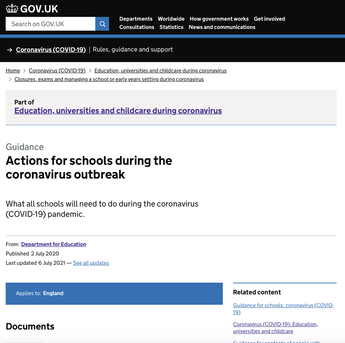
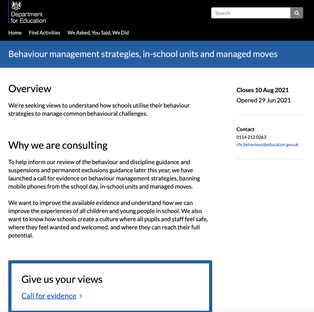



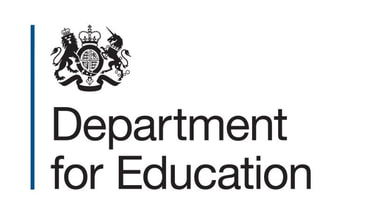
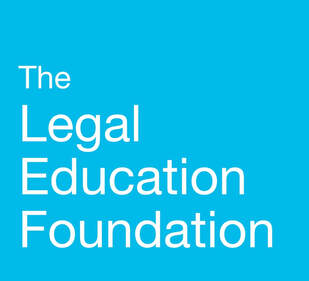







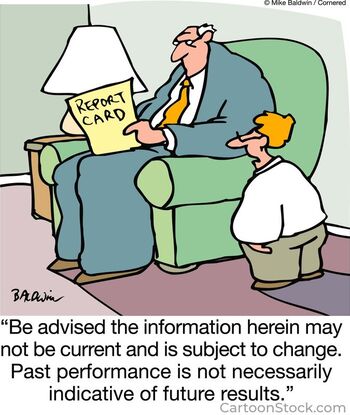

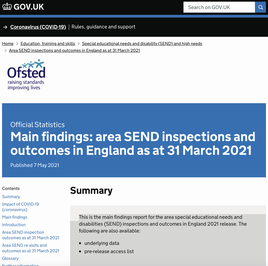



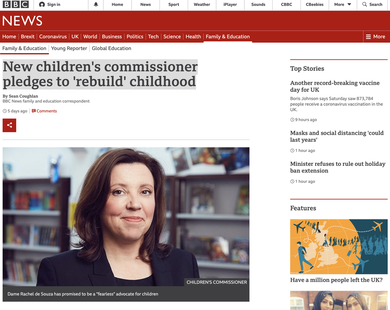
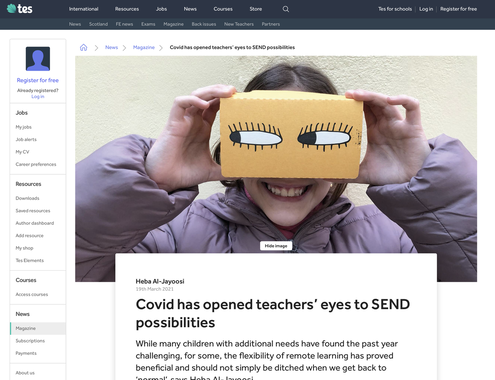








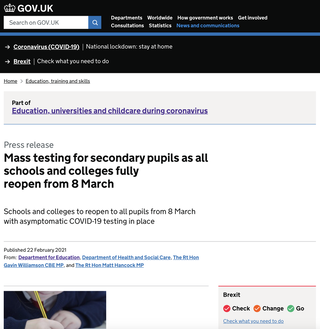
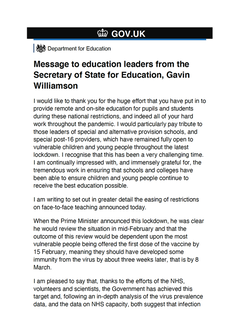




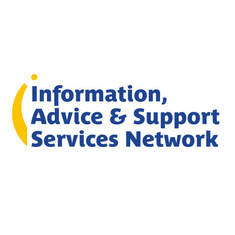








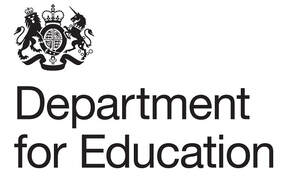
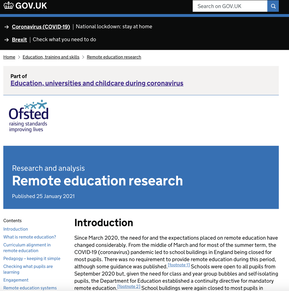



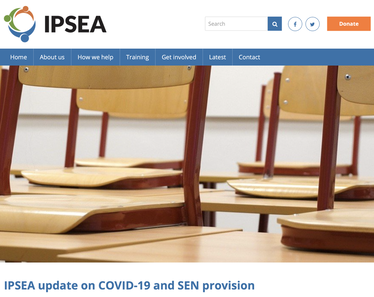
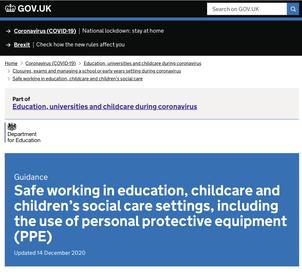
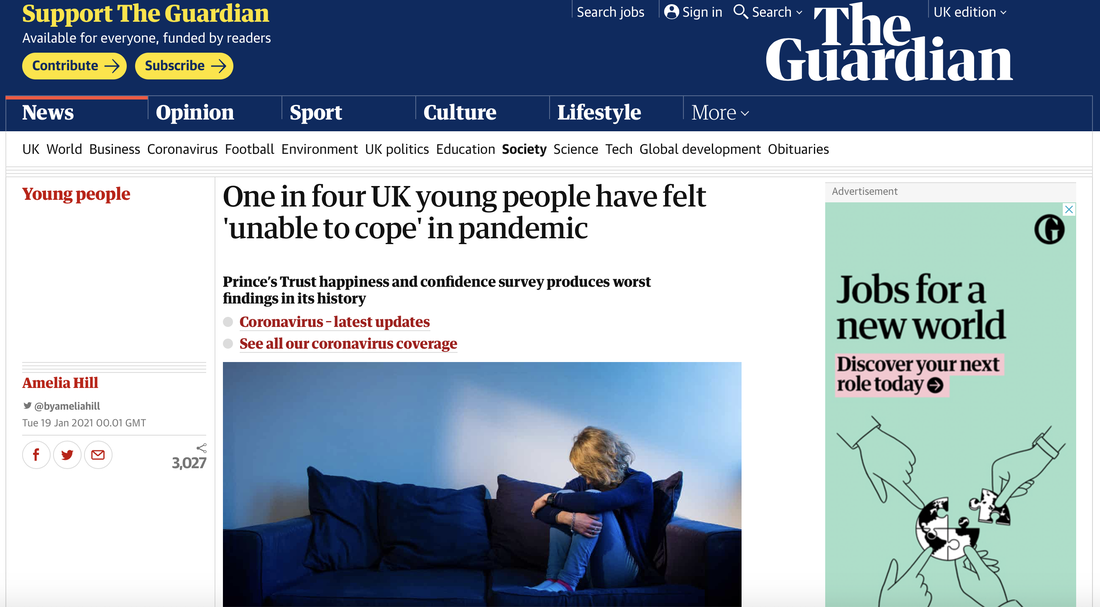
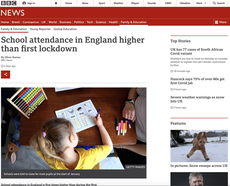
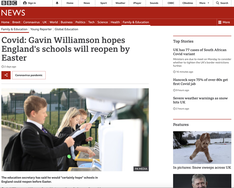



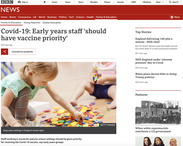

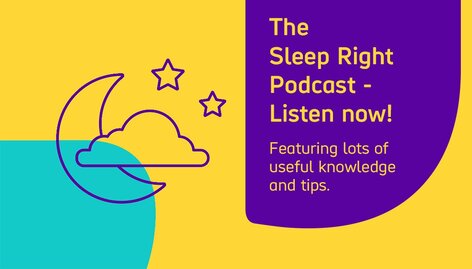

 RSS Feed
RSS Feed







